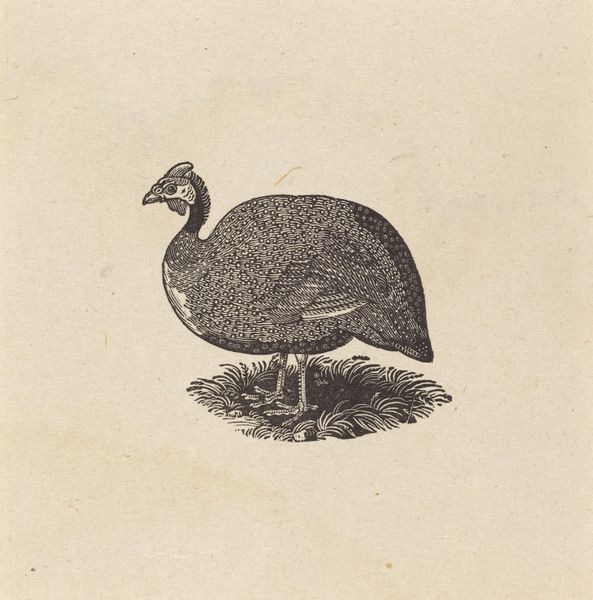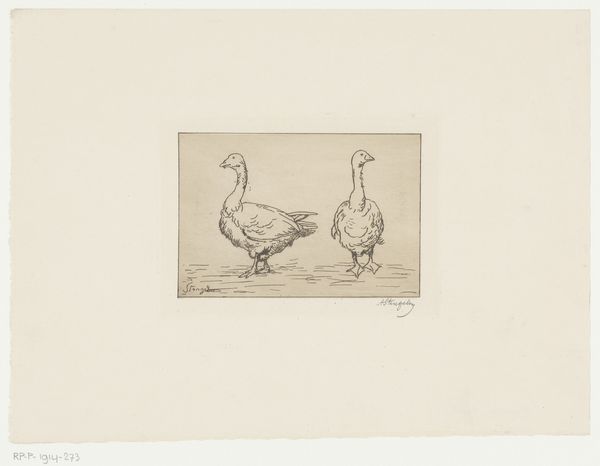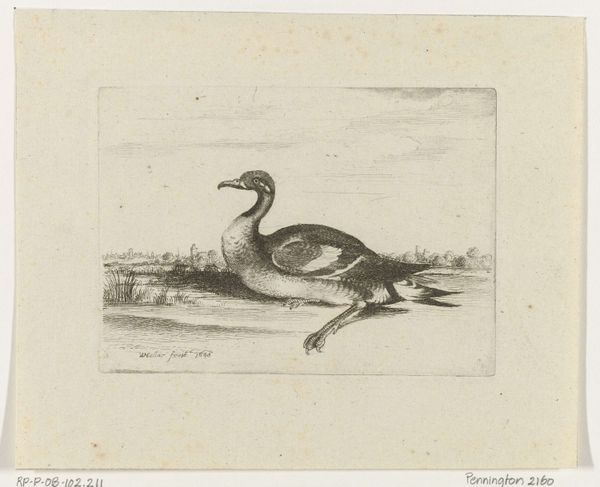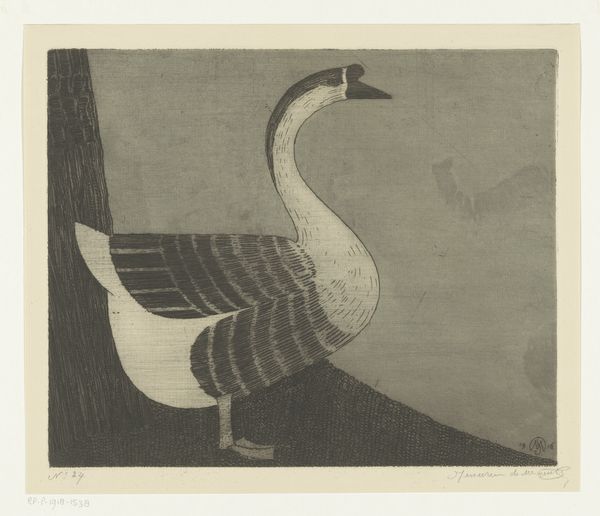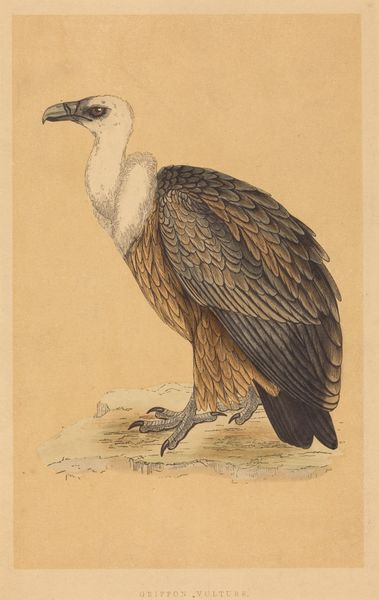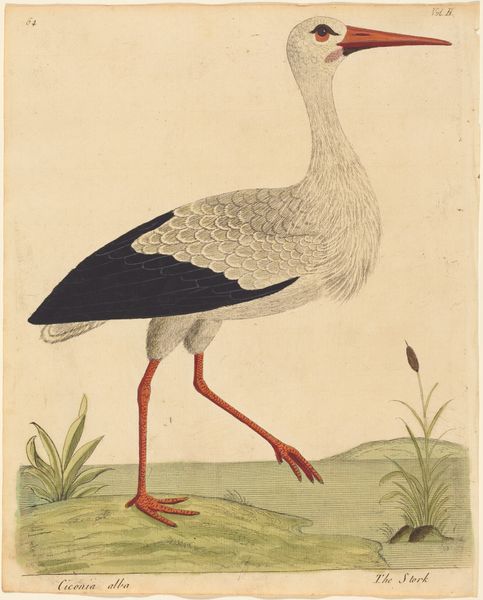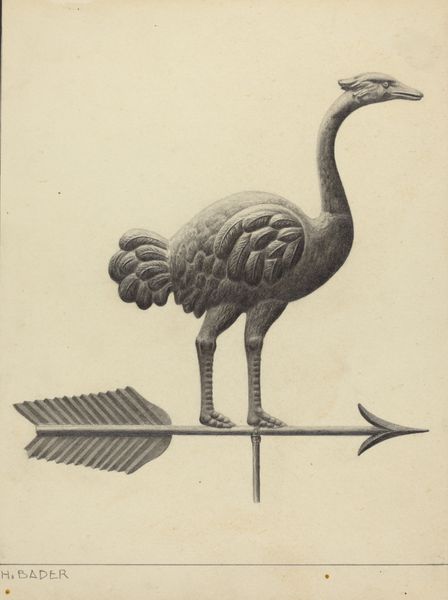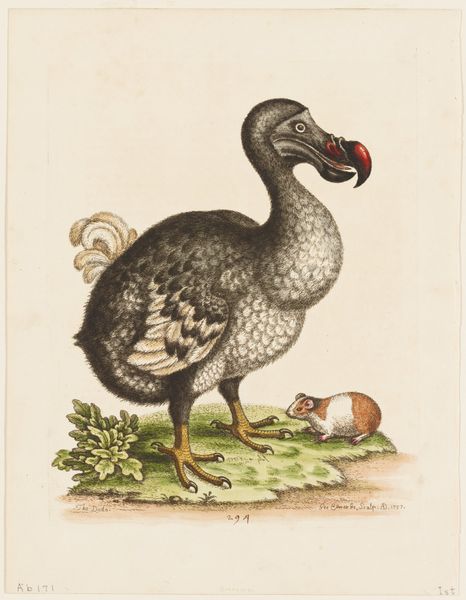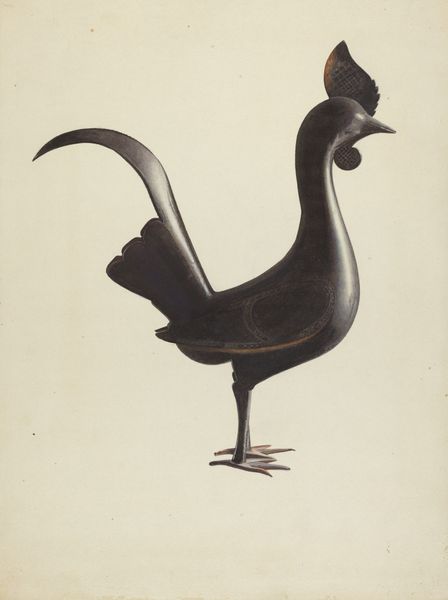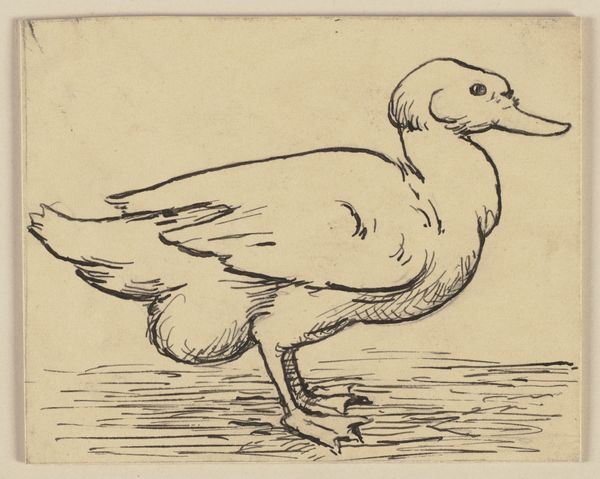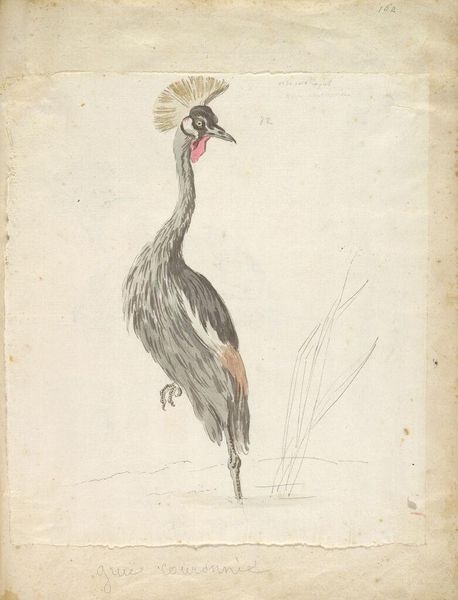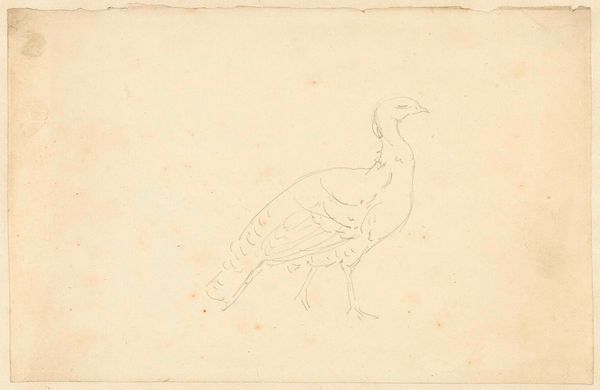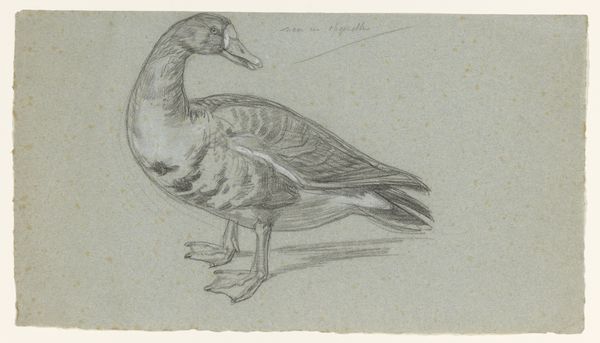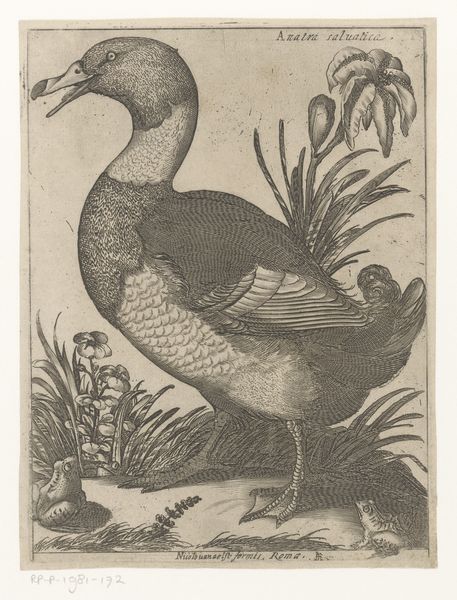
drawing, paper, ink
#
drawing
#
imaginative character sketch
#
quirky illustration
#
light pencil work
#
childish illustration
#
animal
#
cartoon sketch
#
figuration
#
paper
#
personal sketchbook
#
ink
#
line
#
sketchbook drawing
#
cartoon style
#
cartoon carciture
#
sketchbook art
Dimensions: height 107 mm, width 120 mm
Copyright: Rijks Museum: Open Domain
Curator: This drawing, playfully titled "Knobbelgans," roughly translates to "Knob Goose," and was created by Henri Verstijnen sometime between 1892 and 1940. It's an ink and pencil work on paper. Editor: My first impression is of whimsicality. The stark black lines against the off-white paper create a delightful contrast, emphasizing the almost cartoonish qualities of the goose's elongated neck and slightly bulbous body. Curator: Indeed. Verstijnen was very active in Dutch artistic circles. One wonders if his choice to depict a goose reflects an interest in folklore. Geese are strongly linked with ideas of community. Could he have been inspired by societal changes around the turn of the century? Editor: Possibly. I'm drawn to the pattern-like quality of the linework describing the wings; the stark black ink strokes contrast beautifully against the plain body of the goose. It looks very stylized, yet naturalistic. Curator: Certainly. What strikes me is the lack of context. We don’t know why Verstijnen focused on this particular bird, or its role within his body of work. Was this a commission? Was it an informal study? The location itself seems almost irrelevant. Editor: Agreed. Yet that simplicity allows us to focus on the formal qualities, on how Verstijnen uses line to create form and texture. I find the almost careless nature of the ink sketch appealing – you can sense the artist finding the shapes of the creature with his hand, working rapidly. Curator: Perhaps that's where the charm lies, wouldn’t you say? It’s a playful observation of the everyday. A glimpse into a life that values whimsy and observation, in spite of other concerns, whether personal, social, or political. Editor: Absolutely. Seeing the creature distilled to such simple and clean lines gives this illustration strength, in a purely visual and artistic manner.
Comments
No comments
Be the first to comment and join the conversation on the ultimate creative platform.
